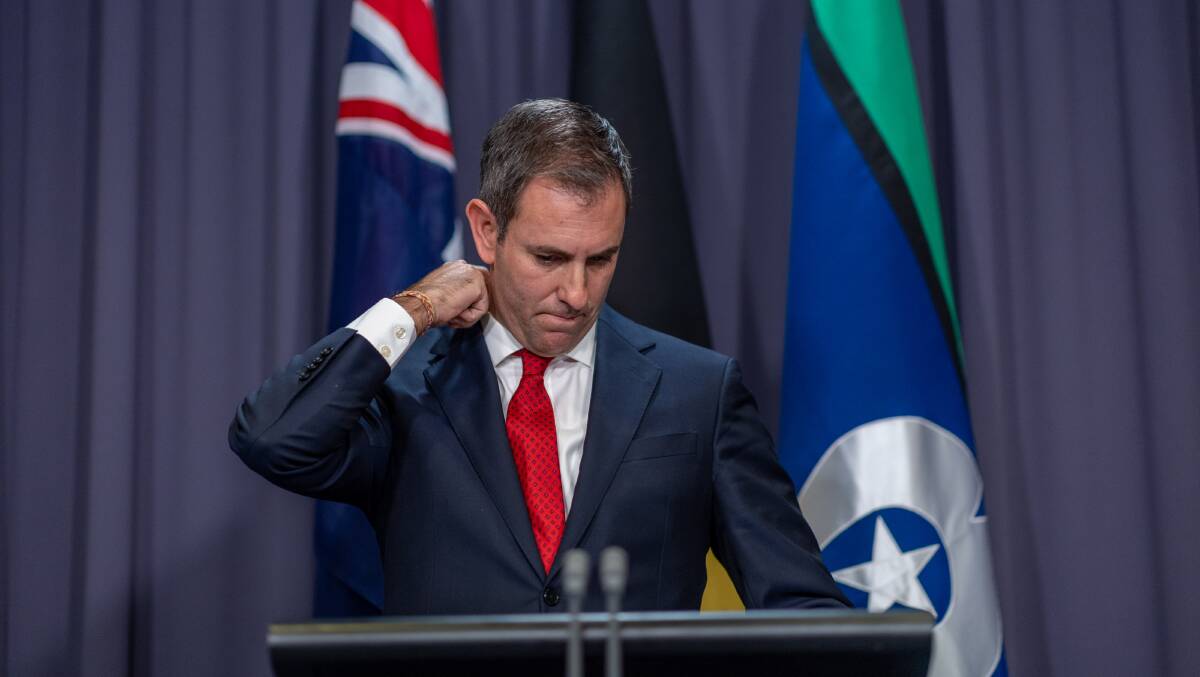The satirical newspaper The Shovel joked that the government was engaging a major consulting firm to investigate how that same firm leaked confidential government information.
Subscribe now for unlimited access.
or signup to continue reading
It was funny, until it turned out to be true.
Senate estimates revealed that while the AFP was recently investigating PwC, it also had a contract with that same firm which granted the firm significant access to all its systems and information.
While the government has been outraged at the conduct of the big four consulting firms, it is paying much less attention to one of the core drivers of these problems which the government could easily fix: a lack of competition.
Scandals involving consulting firms won't go away until this problem is addressed.
The world of consulting rarely gets much attention from competition regulators because the combined market share of the big four consulting firms is actually quite small.
The combined market share of the big four amounts to about 12 per cent based on IBIS World data.
This is far below what would normally attract the attention of the ACCC.
But this is a flawed definition of the market in which these firms actually compete.
Dig deeper into the data, and problems start to emerge.
If we look specifically at consulting contracts with the federal government, the market share of the big four more than doubles.
And if you look at the contracts that are worth the most money (given these firms don't tend to compete much for small contracts) the market share more than triples.
But the biggest concern is what's happening over time.
The combined market share of government contracts held by the big four consulting firms has more than tripled in less than 10 years.
Few industries have seen such a big increase in concentration in such a small space of time.
Turns out, the government's rules around procurement are largely to blame. Analysis from the e61 Institute shows that government procurement is making our economy's lack of dynamism worse, not better.
The e61 Institute found that most government contracts go to old businesses rather than new ones.
More than 60 per cent of government contract funding in 2022 went to businesses more than 20 years old.
They found that only 11 per cent of contract funding goes to start-ups: businesses younger than five years old. This has worsened considerably since 2014.
Worse still, the government favours the same old firms. More than 75 per cent of the value of government contracts went to firms that had won a contract in the previous year.
More than 43 per cent of firms that secured a contract in 2014 continued to win government contracts in 2022.
All of this is terrible for competition and the dynamism of our economy. It's terrible value for money for taxpayers who can sometimes see multiple studies on the same topic be awarded to the same consultants - like the numerous studies to analyse the challenges facing the care sector workforce over the past five years.
It's also terrible for the APS because often consulting gigs serve to displace public servants rather than adding capability or growing the capacity of the public service.
So, given all the scandals and all the outrage expressed by senators and the government, has anything changed?
No. Although the government is spending less on consultants, the money it is spending on consultants is still going to the usual firms.
The good news is that the government has recently announced a review into competition in Australia.
Boosting competition is often tricky because it requires the government to change the incentives of private companies.
But in the case of government contracts, boosting competition is easy because it's government who's making the decisions.
What should the government do? The challenge is that there isn't a level playing field for government contracts between new and established business. The bureaucracy and administrative burden of working with the federal government is so cumbersome that most small businesses don't bother.
You need to be on a government panel to do work for the federal government. And there are multiple panels so, even if you're on a panel, you're probably not on the right one.
Getting on panels can take years and the paperwork is huge and ongoing. And, given the current scandal, it's hard to argue this administrative burden is needed to reduce risk.
This is a huge barrier to entry for new businesses. The system favours and enriches the big old corporates who have the time and resources to jump through hoops.
READ MORE:
This is problematic because it is new businesses which are responsible for most of the job creation and innovation in the economy, not old businesses.
We should be encouraging new businesses to compete for contracts and yet the current system is designed against this end.
When all else is equal, the government should be favouring new and small businesses.
It should allow businesses to join panels at any time and should reduce the administrative burden of doing so.
The fallout from the consulting scandal has revealed that the government has far too many eggs in one basket.
It's time to diversify.
The government's recently announced review into competition means now is the perfect time to do it.
After all, if the government wants to know where many of Australia's competition problems are coming from, it shouldn't be looking at the private sector, it should be looking in the mirror.
- Adam Triggs and Amit Singh are partners at the economics consulting firm, Mandala. Adam is a regular ACM columnist.



